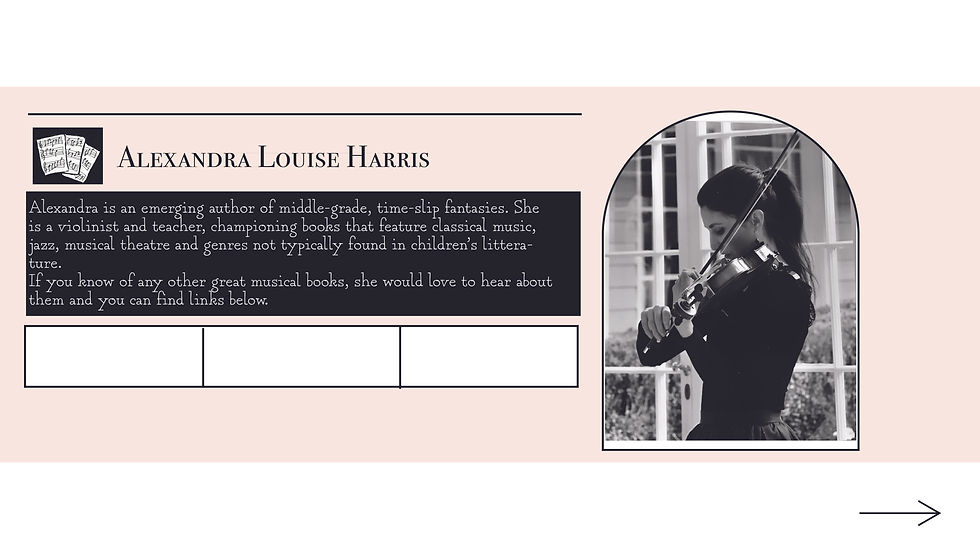What it's like to be strange
- Alexandra Louise Harris

- Dec 20, 2023
- 3 min read
Updated: Mar 4, 2024
I’ve always loved words. In my stories as a child, I was so interested in finding the right word; I didn’t bother about how to spell them, and it led me to ponder… What do words really mean? Take the word ‘strange’, for example. I’ve long suspected—and been quietly convinced—I’m a little strange. More than a little, if I’m completely honest. It’s probably no secret to those who know me well. Even those who don’t may have noticed my oddities, my random inspirations and now that I’m sharing my writing with the world… imagination. But it’s scary being strange, isn’t it?

We often try to hide it too.
So what does the word strange really mean? Well, commonly we use it to describe things that are unusual and odd, but apparently there are ten different uses! Who would’ve thunk? Moreover, as I typed out the word for this window, the ‘s’ seemed to be separated from the ‘trange’. To my surprise, I also discovered trange is a word. According to the Cambridge dictionary, it refers to ‘feeling uncomfortable because there is not enough space’.
Interesting… and rather poignant, I think you’ll agree! Perhaps it’s like hiding our weirdness inside a closet? Rather suffocating, unless that wardrobe happens to lead to Narnia.
Anyway, the etymology of the word derives from the French word; estranger. We are familiar with ‘estranged’, referring to family members who are no longer in contact, but the original meaning meant to treat someone like a stranger.
People are strange, when you’re a stranger… Maybe the Doors were right? I’m sure doors see all kinds of strangeness, and what stranger creatures are there than people?
Lately, I’ve been contemplating how writers think about strangeness. How many considered their ideas were too weird for the world? For instance, I'm currently reading Neil Gamon’s The Graveyard Book. It’s a book about a boy raised in a graveyard of ghosts, and firstly; I have to say it’s amazing. However, the premise of the story is so random. I can’t help wondering if Neil—I’m sure he won’t mind if I call him Neil—doubted the concept at any point.
Well, in this interview, he explains, came up with the idea at the age of 25, and thought ‘the idea that I’ve got, is a better idea than I am as a writer. I’m not good enough for this; and I need to get better in order to write it.’ Every 5 or 6 years he’d try again until finally he decided ‘he’s about as good (as a writer) as he’s going to be’.
I’ll delve into that further soon, but there are loads of examples of strange books out there in the world. Goodreads has a list of the weirdest books ever, and there are certainly some classic titles there! A few standout in the children’s genre, like Alice Through the Looking Glass and A Wrinkle in Time, but I’m sure you have your own list in mind. After all, every time we read a fantasy novel we encounter unfamiliar worlds with unexpected occurrences; and if they weren’t a little strange, something would be missing.
For instance, as I write this, Willy Wonka is on television. How wonderfully wacky is Willy Wonka’s chocolate factory? Thank goodness, Roald Dahl didn’t think that idea was too strange!
Which reminds me, I really must read that again. Oh, and Patch Adams has just started. What a great movie, and another fine example of embracing strangeness.
So, that’s the inspiration behind the castle of creativity. I’m collecting words that sometimes mean something negative and turning them around into a positive. I’m going to decorate them in my favourite colour scheme—black, white and gold—and pop them behind the windows.
By the way, if you feel like making your own, you can too. Here are all the bits and pieces you need to print, and it’s super easy to put together.
What I feel most of all, is that sometimes we need a reminder to look inwards. Inside the castles of our minds, are unique qualities that can be hard for us to accept, but there’s a reason they’re there. And who knows? If we open that strange window, we might find something marvellous.



Comments